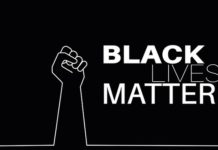Judicial Watch announced today that a federal court ruled a lawsuit can proceed against Illinois officials for denying public access to Illinois’ voter registration database.
Judicial Watch filed the lawsuit on behalf of the Illinois Conservative Union (ICU) and three of its officers, Carol Davis, Janet Shaw, and Loretta Savee. after Illinois state officials refused to allow them to obtain a copy of the state’s voter registration database despite their lawful request for it under federal law (Illinois Conservative Union et al v. Illinois et al. (No. 1:20-cv-05542)).
The National Voter Registration Act of 1993 (NVRA) provides that states “shall make available for public inspection and, where available, photocopying at a reasonable cost, all records concerning the implementation of programs and activities conducted for the purpose of ensuring the accuracy and currency of official lists of eligible voters.”
When members of the ICU sought access to Illinois’ voter list, however, they were told they must view the database one record at a time, on a single computer screen, during “normal business hours,” at the State Board of Elections office in Springfield, Illinois, which is 200 miles from where they live. There are over 8 million voter registrations in Illinois. Judicial Watch argued that Illinois’ arbitrary restrictions “make a mockery” of federal law, “as much as a requirement that Plaintiffs wear blindfolds.”
United States District Court Judge Sara L. Ellis ruled that “Plaintiffs have plausibly alleged that” Illinois law “conflicts with” and “and frustrates the NVRA’s purpose of providing voter information to the public to help ensure the accuracy and currency of voter registration rolls.” She also allowed a claim to proceed under the Equal Protection Clause of the Fourteenth Amendment, on the ground that political committees in Illinois can access copies of the voter registration database while ordinary citizens cannot.
The claims will proceed against Illinois’ chief state elections official, Bernadette Matthews, the Acting Executive Director of the Illinois State Board of Elections. The Court directed further briefing on whether NVRA claims can proceed against the Board itself and the State of Illinois under the doctrine of sovereign immunity.
“Dirty voter rolls can mean dirty elections – which is one reason why federal law requires access to voting rolls,” said Judicial Watch President Tom Fitton. “This court ruling further affirms that Illinois voters and citizens have a right to review election rolls under federal law. Illinois’ stubborn and unlawful refusal to make them available suggests the state knows the rolls are a mess.”
Judicial Watch is a national leader for cleaner elections.
In 2020, Judicial Watch sued North Carolina, Pennsylvania, and Colorado for failing to clean their voter rolls.
In 2018, the Supreme Court upheld a voter-roll cleanup program that resulted from a Judicial Watch settlement of a federal lawsuit with Ohio. California settled a federal lawsuit with Judicial Watch and in 2019 began the process of removing up to 1.6 million inactive names from Los Angeles County’s voter rolls.
Kentucky also began a cleanup of hundreds of thousands of old registrations after it entered into a consent decree to end another Judicial Watch lawsuit. In September of last year, the U.S. District Court for the Eastern District of Kentucky agreed to extend the consent decree through 2025 after finding that that Kentucky’s former Democrat Secretary of State Alison Lundergan Grimes breached its terms by delaying sending out voter notices, which allowed the names of people who have died or moved away to remain on the Commonwealth’s voter rolls.
In October 2020, Judicial Watch released a study that found 353 counties nationwide that had more voter registrations than citizens old enough to vote, i.e., counties where registration rates exceed 100%. These counties combined had about 1.8 million registrations over the 100%-registered mark.
Judicial Watch Attorney Robert Popper is the director of Judicial Watch’s election integrity initiative. Judicial Watch is being assisted by Stephen F. Boulton of Anthony J. Peraica & Associates, Ltd. in Chicago, Illinois.
















